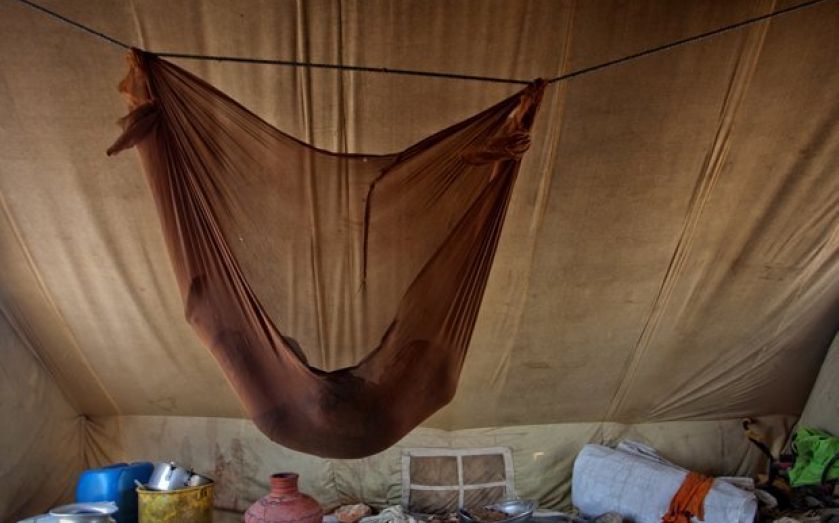Anti-globalisation campaigners got it wrong: Trade is defeating poverty

GLOBALISATION is likely to have cut the number of people in the world in poverty by three quarters by 2015. This remarkable trend was the reason I first became interested in economics. I was brought up in Malaysia, and could see that economic development was gradually wiping out poverty. It seemed almost miraculous, and I wanted to understand the process that made it possible.
The latest official data for Malaysia suggests that, while 49 per cent of households suffered from poverty in 1970, today the percentage is below 5 per cent. This may exaggerate the success slightly, but it would be difficult to deny that there has been a huge improvement in the living standards of the poor, with much reduced malnutrition, a sharp reduction in infant mortality, and a jump in life expectancy.
The most recent studies from the respected Brookings Institute claim that, by 2015, the number of poor in the world will have fallen to below 600m – down by three quarters from the 1990 benchmark targeted by the United Nations Millennium Development goal. The Millennium Development goal was to reduce poverty by half. It now looks like we have done many times better, and reduced it by three quarters.
This has been achieved largely through growth, brought about by trade and globalisation. The role played by aid in this process has been tiny. And yet the role played by so-called anti-poverty campaigners has been perverse.
Although some campaigners have genuinely tried to help the poor, more have campaigned against globalisation, even as this process has worked its magic to reduce poverty. Christian Aid, for example, provides a globalisation “trading game” for students, filled with such propaganda claims as trade is “unfair”.
Oxfam appears to have changed tack dramatically, and has broken with the anti-globalisation movement. But before, it had made some tough claims like “the rules that govern [international trade] are rigged in favour of the rich.” Cafod, the Catholic charity, has worked with Christian Aid to assert that globalisation could not succeed in reducing poverty on anything like the scale implied by the Millennium Development Goals. This turns out to have not just been wrong, but the precise opposite of the truth.
Why do so many think that globalisation has had such disastrous consequences? The answer is that part of the process of making the poor in poor countries richer has been associated with falling real wages for poorer people in rich countries. And since rich countries have built a high cost base into their systems, heavy regulation, expensive housing and costly energy have all raised the cost of living.
But the solution to that problem is not to go back to a world where the poorest people slide back into poverty again. It is to find ways of bringing down the cost of living in countries like Britain, and to improve the skills of poorer people so that they can get decent jobs.
In a lecture I am giving tonight, I will disentangle the evidence on poverty, inequality and globalisation to show what is really going on. As well as the incomes of the poor, I will consider what has happened to top salaries, with a vignette on footballers, where top footballers’ pay has ballooned. A star player today like Wayne Rooney will get paid nearly 500 times as much as a player in one of the lower leagues. By comparison, the equivalent multiple for Sir Bobby Charlton was only 10.
But we should concern ourselves much more with what is happening to poor people than what is happening to rich people. In most cases, there is likely to be an upper limit to how much rich people will get paid. For businessmen and financial executives we may be very close to that limit already.
But at the heart of my argument rest the words of a priest. In Times Square, New York there is a statue of father Francis Duffy. Duffy was the chaplain of the Fighting Sixty Ninth Regiment, which fought in the trenches in the First World War. He was the best-known priest of his time in New York, and his mantra was to send people out into the world with “warm hearts and clear heads”.
My message to the anti-globalisation movement is to heed Duffy’s advice. Approach economic issues with a clear head. Do not allow a lack of clarity to encourage you to campaign against the developments that have played so important a role in raising the poorest people in the world out of poverty. Oxfam has shown the way by changing its tune – be brave enough to admit you were wrong and start campaigning to make the poor better off not worse off.
Douglas McWilliams is Gresham professor of commerce, and executive chairman of the Centre for Economics and Business Research. His first public lecture of the 2013-14 academic year, on Globalisation and Inequality, is held in the Museum of London, 150 London Wall, tonight at 6.00pm. www.gresham.ac.uk